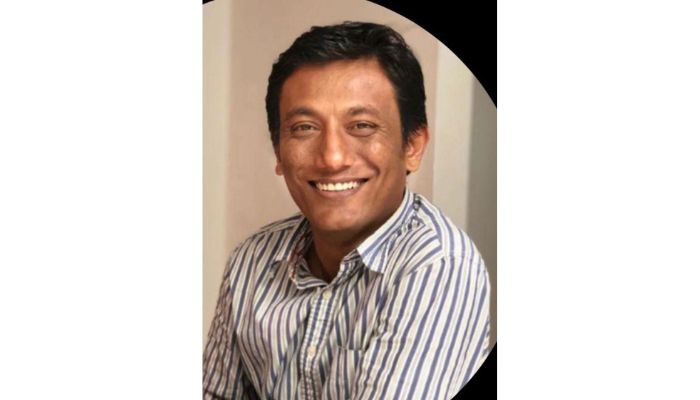Future of Data Privacy Legislation Post-GDPR: Expert Maulik Raval’s Insights

We had a fascinating discussion with Maulik Raval, an amazing leader and creator currently employed at Fine Hospitality Group as a Compliance Manager. We learned about his experiences, his vision, and the motivation behind his amazing journey. Maulik also holds a law degree from USC, the University of Southern California. This is a little sample of our fascinating discussion.
Q: Would you like to share your background and how you arrived at that career and area of expertise?
Maulik Raval: It was a joy to be here. I wanted to begin my journey when a childhood ambition of mine to use technology to improve people’s lives one day came true. I chose computer science as my topic of study since it allowed me to move closer to my dream job. Throughout the years I have worked, I have encountered excellent teams and businesses, and each encounter helps shape a fresh perspective or the desire to start something from scratch. Furthermore, I received guidance on how to pursue my professional objectives in the legal sector while pursuing an LL.M. at the University of Southern California.
What made you decide to focus on your current projects?
Maulik Raval: This is due to the desire to find solutions to real-world issues that have a significant influence. I have always been fascinated by the idea of using technology to address a variety of problems; these could include increasing efficiency and offering better services to people while also making sure that future generations can meet their needs without endangering the current ones. This is a result of the fact that I am motivated anytime it becomes clear that such concepts have practical applications.
Could you describe a big obstacle you’ve faced in the past and how you overcame it?
Maulik Raval: Some of the most challenging times, in my opinion, were during the early stages of the startup. There were limited resources and no guarantee of success. However, with perseverance and knowledge gained, the team overcame these obstacles with a revised goal and vision statement. This helped me understand the value of perseverance while staying on course.
What qualities, in your opinion, characterize effective leaders, particularly in light of the quickly accelerating pace of technological advancement?
Maulik Raval: Mastering the skills of doing and visualizing is necessary for anyone who wants to be a great leader. In my opinion, leadership involves ensuring that everyone in the organization follows that course as well as determining one’s own future goals. Flexibility is another crucial but difficult-to-define value; it is the capacity to accept change and shift course when necessary. In addition to technical proficiency, leaders who value their team and other stakeholders also possess emotional intelligence and effective communication abilities.
Q: What impact do you envisage GDPR imposing on the subsequent developments of data privacy legislation all across the world?
Maulik Raval: Thus, GDPR can be recounted as one of the most beneficial and efficient practices in establishing data protection laws across the globe. While it has succeeded in changing laws within the EU realm, it has also encouraged other parts of the world to improve their data protection systems. The CCPA mirrors GDPR in that countries like Brazil have legislation such as LGPD in place. In the future, I envisage a campaign to integrate the laws and policies governing data protection and privacy across the world, as the nations follow good standards in advancing the data protection initiative across the member’s borders. Such global alignment will be important as more platforms develop data-driven technologies.
Q: What are some of the shortcomings in the current implementations of GDPR, and what trends do you expect to affect the evolving of data privacy regulations and the challenges that businesses are likely to encounter?
Maulik Raval: This is especially so because it will be an added task to monitor and ensure compliance with multiple, and possibly evolving, regulations about the various jurisdictions. Organizations will be required to set up compliance systems that can be updated clearly and easily to meet new legal rules. Linking data privacy to the organizational culture and concrete business practices, rather than making it an ad hoc procedure, is an issue that needs considerable attention. It takes constant enhancement of personnel, updating of user’s privacy policies as well as acquiring technology that can enhance internal compliance like database algorithms. Further, it is crucial to consider a shift that has been taking place in consumer options and their need to decide about something.
Q: In consideration of your ideas, how might technology shape the future of data privacy and compliance?
Maulik Raval: In this context, technology will be a crucial driver of change in data protection and compliance. The executive data management platforms with integrated AI and machine learning capabilities can assist organizational compliance by showing where personal data exists, locating them, verifying their accuracy, and replying to data portability requests. Blockchain technology also has the potential to improve data security and make information more accurate. Additionally, Organizational data can be analyzed while ensuring minimum exposure of the individuals’ information through privacy-preserving techniques,that include differential privacy and homomorphic encryption. These risks will be offset by improvements in technology which will help create stronger and more effective methods of meeting the compliance standards as well as the protection of the individual’s privacy.
In summary:
The fact that Maulik Raval took advantage of possibilities and went down a progressive road is encouraging for his goals. With their knowledge and experiences, they can cultivate essential leadership traits and concepts that will aid them in becoming forward-thinking businesspeople. The globe is excited to follow their future initiatives in the IT sector and other related domains.





